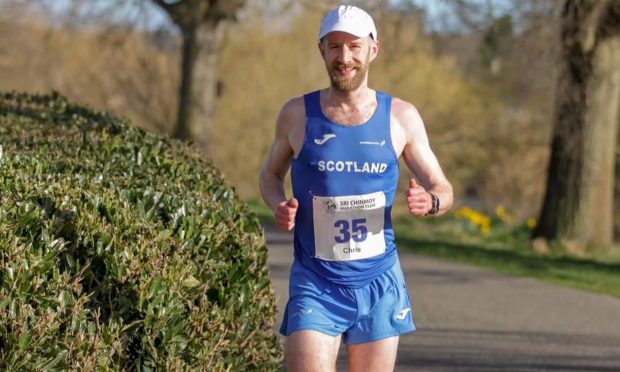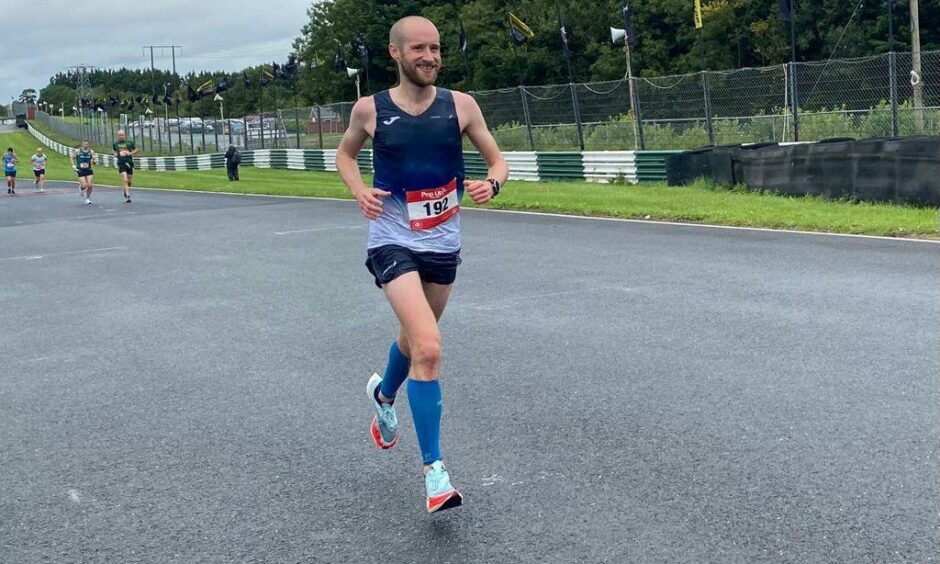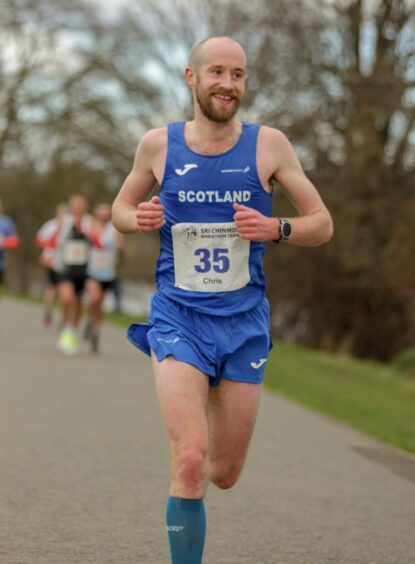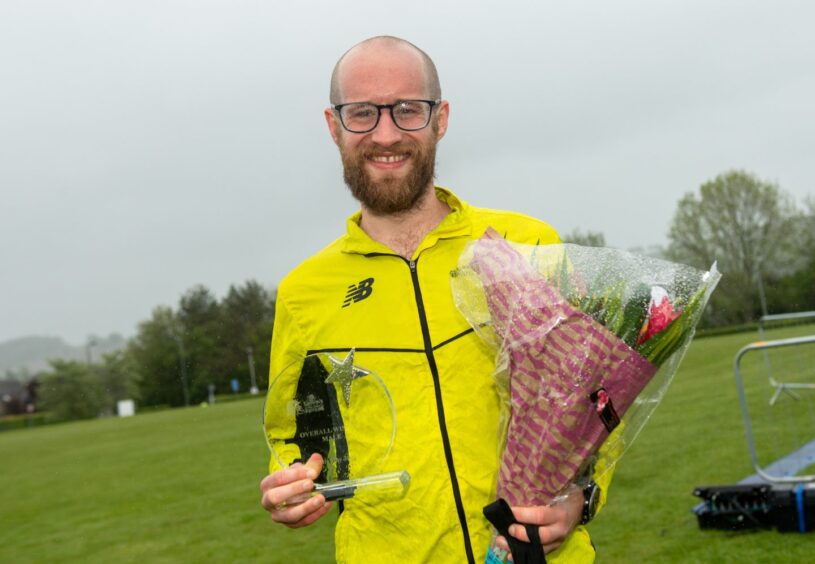Aberdeen’s Chris Richardson – who is set to run in the 100km world championships next month – admits even he battles a voice in his head “finding excuses to stop”.
Chris will earn a maiden Great Britain vest when he travels to Bengaluru, India, to race on December 7.
The 34-year-old’s selection as one of six British men for the world championships was confirmed in August.
He was chosen after finishing fourth in this year’s Anglo-Celtic Plate – which doubled as the trial race for worlds – in a time of six hours, 40 minutes and 44 seconds.
Having worn the Scotland vest four times in the Anglo-Celtic meet, winning the title in 2021, Chris is chuffed to be pulling on the GB jersey for the first time.
But how does someone run 100km, or 62 miles – roughly Aberdeen to Dundee – without stopping, and let alone in the humid, 30-degree climate of southern India?
Chris said: “It’s a looped road course, so I don’t know whether that means there’s tarmac all the way around. It’s in the grounds of an agricultural college.
“In 100K, it very much punishes bravado and stupidity.
“It punishes you if you get too excited, and to be able to run a good 100K you need to be fast enough to be able to do stupid things, but you also need to be willing not to do them.
“I like to take the start quite comfortably and I like to watch people sail off into the distance thinking that they’re going to suffer more than I’m going to suffer.
“It is halfway – or maybe a bit more like 60/66K – before I really lean into the suffering and before anything really hurts.
“Then I tend to kind of just get my head down, sometimes start making strange noises, take on a lot of caffeine, and really I like to move through the field – if I can – and kind of pass people as many as possible.
“I almost do enjoy the discomfort you get between 60 and 80 or 90K, but the last 10K is always pretty unenjoyable!”
‘Maybe I need the toilet… to adjust my shoes… to stop and take on food’ – Chris on ignoring ‘excuses to stop’
Runners of all levels will know, when the “suffering” starts, the mind can quickly become an adversary.
It is the same for Chris, despite having earned his place among the global ultra-running elite.
And he thinks lap courses, like at the 100km world championships in India, can make or break you.
Asked whether he has thoughts of stopping when he is running a gruelling 100km,
Chris said: “Yeah, absolutely, and finding excuses to stop.
“Thinking: ‘maybe I need the toilet’… ‘actually I need to adjust my shoes’… ‘I need to stop and take on food’ – the nature of a lapped course kind of both gives you the opportunity to bail out and stop at any point.
“But it also means you feel a bit like you need to prove a point to everybody (watching) that you pass every few minutes. You feel committed to the pace that you’re going.
“In India, it will be a little bit over 20 minutes a lap.
“I do think that it helps that you’re just ticking off the same things – you keep seeing the same things and you gee yourself up for the slight climb that’s coming up.
“For me, it actually helps – the laps.
“But I think for some people that can be an invitation to stop every few minutes.”
Great Western Road to Bengaluru: Chris wants British team medal
Though this summer he ran the London Marathon with friends and took on the Banchory Half Marathon, much of Chris’ preparations for the 100km world championships have been carried out near his home on Great Western Road.
The Metro Aberdeen running club member, who draws maps for energy firm BP, will arrive in Bengaluru on Wednesday, December 5, two days before the race.
He thinks the conditions in India might mean the individual world title is won in a modest time of more than six-and-a-half hours – far shy of the 6:05:35 world record.
The target for Britain’s men is a team medal, with Chris saying: “We’ve got six in the team and three will count.
“100Ks tend to be quite attritional and there’s quite a high percentage of bad races, so it’s good that we’ve got six of us.
“I think if I put in a solid performance of top-30, or top-20, there’s a reasonable chance of being in that first three of our counting team, or supporting that.
“I think probably a good performance above par (individually) would be something like top-20, and the complete performance – the best that would be possible – would be top-10.
“But really what I want is to get a team medal because we’ve got a really strong team in terms of depth.”




Conversation